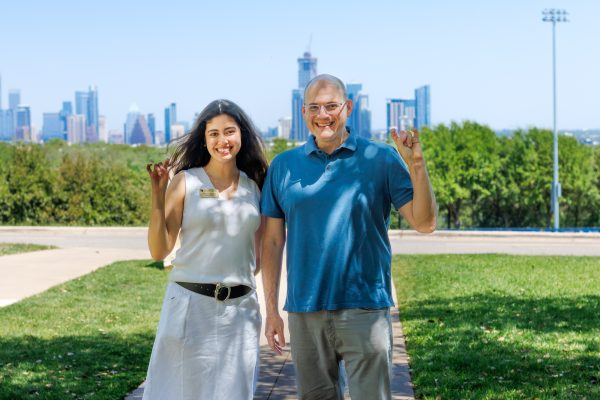Trinity debates religious sensitivity
Some Trinity University students are asking school trustees to drop the words “Our Lord” from their diplomas, arguing that the reference doesn’t respect the diversity of religions on campus.
Sidra Qureshi, a Muslim student and president of Trinity Diversity Connection, is leading the charge to tweak the wording. The effort has won the support of student government, and trustees are expected to consider the request in May.
“A diploma is a very personal item, and people want to proudly display it in their offices and homes,” Qureshi told the San Antonio Express-News in Monday’s editions. “By having the phrase In the Year of Our Lord,’ it is directly referencing Jesus Christ, and not everyone believes in Jesus Christ.”
The school’s president and other students defend the wording, saying the school’s Presbyterian roots are appropriate and unobtrusive. Founded in 1869, Trinity has been governed by an independent board of trustees since 1969 but maintains a “covenant relationship” with the church.
President Dennis Ahlburg said Trinity should continue to foster a diverse environment but should not ignore its cultural and religious roots.
“The fundamental issue is not so much what is on the diploma,” he said. “The fundamental question is, ‘Is Trinity a place that is accepting and supportive of all faiths?'”
The debate started last year when Isaac Medina, a Muslim convert from Mexico, noticed the wording on pre-made diploma frames.
“I honestly feel like nobody actually noticed it before,” Medina said. “Now that it has been brought up, the institution is trying to find its own identity. Are we or are we not a religious institution?”
When Medina applied to Trinity, university staff told him it wasn’t a religious institution and that it maintained only a historical bond to the church. He said he’d always felt welcome at Trinity, where the campus chaplain caters to students of all religions and the university recently dedicated a Muslim prayer space.
So the reference on the diploma “came as a big surprise,” said Medina, who graduated in December. “I felt I was a victim of a bait and switch.”
Qureshi and Medina initially sought a change only for students who desired it, but university staff told them the school would not print custom diplomas.
Ahlburg said he’s heard from many alumni and donors who oppose the change. Brendan McNamara, president of the College Republicans, also is against a change.
“Any cultural reference, even if it is religious, our first instinct should not be to remove it, but to accept it and tolerate it,” said. “Once you remove that phrase, where do you draw the line?”
Though Trinity has historically enrolled mostly white Christians, the university has taken pains to increase diversity. Since 1999, the share of international students has increased from 1 percent to 9 percent.
Copyright 2010
The Associated Press






